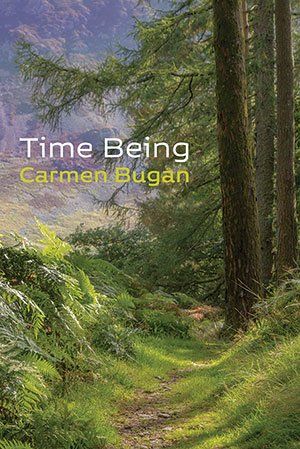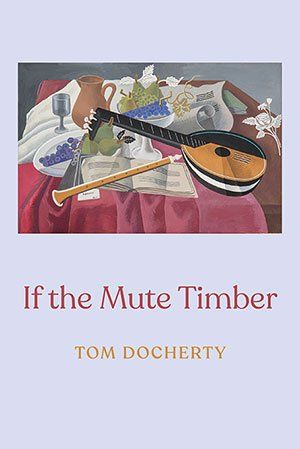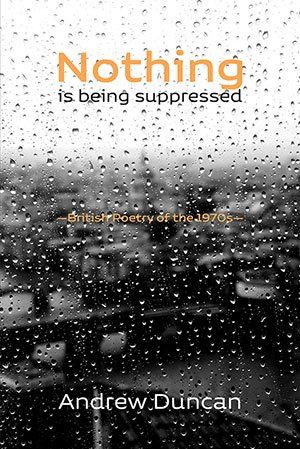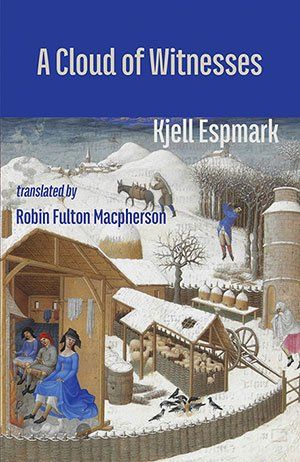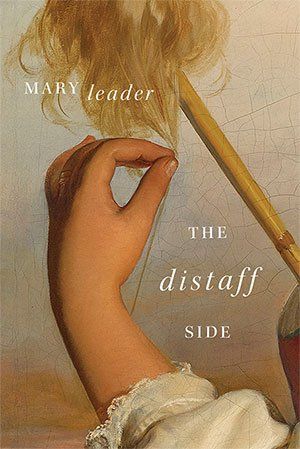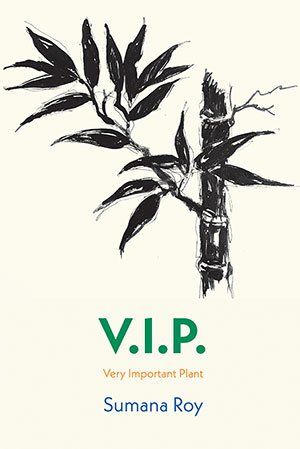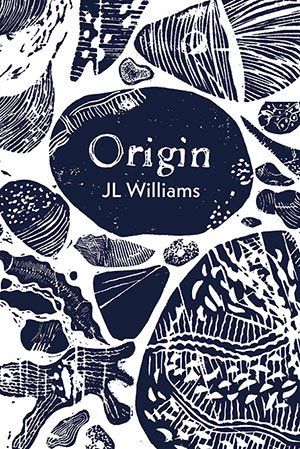2022 Titles
Martin Anderson A Country Without Names
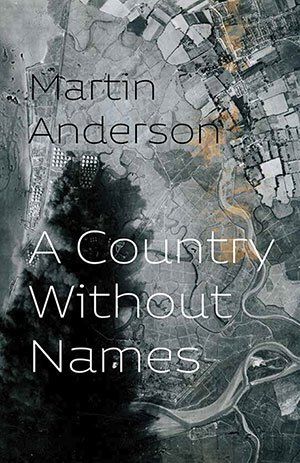
David Annwn (ed.) Shape-Shifter — a tribute to Gavin Selerie
Gavin Selerie – poet, and Shearsman author – is currently one of the most skilful and imaginative exponents of the long, book-length poem in English. His friends and colleagues gather together here in this volume to offer poems, essays, interviews, memoirs, photographs and artworks in his honour, along with some reprinted pieces by Gavin himself.
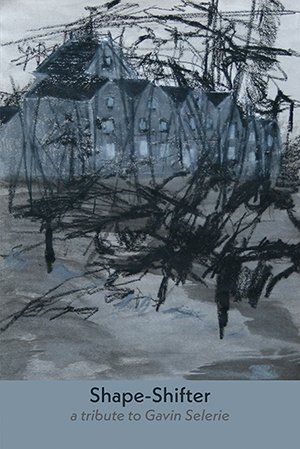
Josephine Balmer Ghost Passage
ISBN 9781848617940 [Download a sample PDF from this book here.]
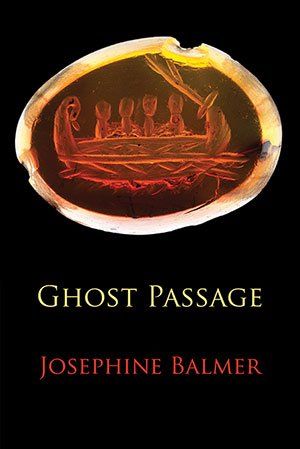
Richard Berengarten The Wine Cup
Published 2022. Chapbook, 36pp, 8.5 x 5.5ins, £7.50 / $10.95.
ISBN 9781848618503 [Download a sample PDF from this book here .]
Sonnet-sequences have a history of nearly 1,000 years. But a sequence of villanelles? Here, perhaps for the first time ever in English, is a suite of twenty-four of them. The delicate instrument of the villanelle is played, lightly and gently, to salute Tao Yuanming, Chinese poet, Daoist, recluse, and a great Lord of Wine, who lived more than 1,500 years ago.
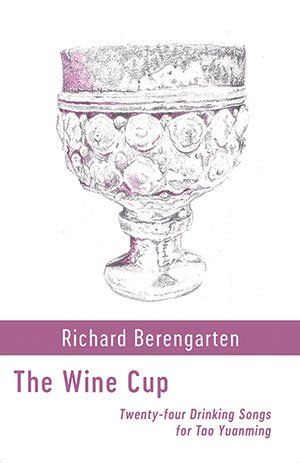
Carmen Bugan Time Being
Published 2022. Paperback, 98pp, 9 x 6ins, £10.95 / $18
ISBN 9781848618039 [Download a sample PDF from this book here .]
"In these poems, many addressing the 'long Sunday' of the pandemic years, Carmen Bugan reflects on the impact of the virus through the prism of personal family moments and local experience. She writes with disciplined precision, always attendant to the necessary nuance poetry demands. Her lyric voice and moral imagination in these poems gathers its energy from the urgency of daily concerns and anxieties, as well as the need to witness. Set against a time of crisis, she maintains a sense of wonder at the resilience of nature, her children, her own spirit. At the heart of this compelling collection is assurance and the poet’s good instruction to herself 'to feel the real, to protect myself against the imagined': advice each of us should heed." —Gerard Smyth, Poetry Editor,
The Irish Times.
Mercedes Cebrián Affordable Angst — Selected Poems
Published 2022. Paperback, 144pp, 9 x 6ins, £12.95 / $20
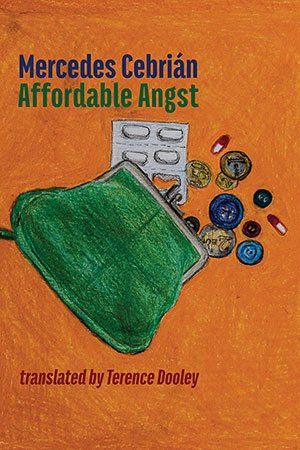
Kelvin Corcoran (ed.) Shearsman 133 / 134
The second double-issue of Shearsman magazine for 2022 features poetry by Gordon Alexander, Lisa Blackwell, Cecile Bol, Ken Bolton, Jessica Bundschuh, Geraldine Clarkson, Angelina D’Roza, Lucy Hamilton, Denis Harnedy, Finn Haunch, Jill Jones, L. Kiew, Edward Lee, Hannah Linden, Tim MacGabhann, Aonghas Macneacail, David Miller, Eliza O’Toole, Rochelle Owens, Peter Riley, Lucy Maxwell Scott, Lucy Sheerman, Penelope Shuttle, Andrew Taylor and Tamar Yoseloff, plus translations of Chen Xianfa (by Martyn Crucefix & Nancy Feng Liang), Dorien De Wit (by Judith Wilkinson) and Ulrike Almut Sandig (by Karen Leeder).
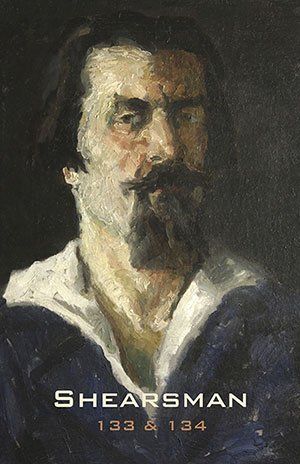
Kelvin Corcoran & Alan Halsey Into the Interior
Published 2022. Chapbook, 24pp, 8.5 x 5.5ins, £7.50 / $10.95.
ISBN 9781848618459
What are the captions using us for?
Halsey's series of diagrams and quatrains for Into the Interior is suggestive of a journey through the rebus-like territory of thought itself. Corcoran doubles the quatrains in answering him back, as if such a dialogue might be how to talk to a friend exploring the enigmatic signs of the journey remembered from long ago and made present again.
Poets Kelvin Corcoran and Alan Halsey have often collaborated. In the past this brought us
Your Thinking Tracts or Nation s (West House 2001),
A Horse That Runs: To & Fro with Wallace Stevens (Constitutional Information 2015), and
Winterreisen (Knives Forks and Spoons Press, 2019).
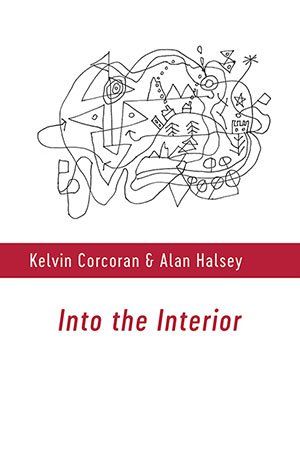
Rosemarie Corlett Flightless Bird
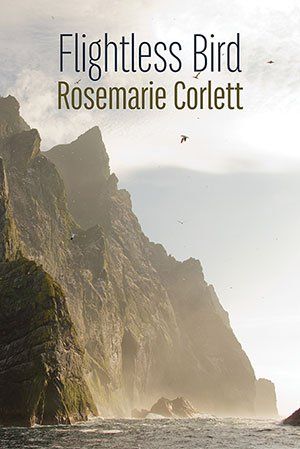
Claire Crowther A Pair of Three
Claire Crowther’s fifth collection, A Pair of Three, is her most personal yet, a story of marriage to a widower. It explores a trio, wife, husband and first wife, in a love story that is moving, uplifting, often funny but rarely told. The emotional power of lyric, the narrative of ballad and the drama of modernist poems are all displayed in this distinctive sequence. Claire Crowther’s previous collection, Solar Cruise, was widely praised and awarded a Poetry Book Society Recommendation.
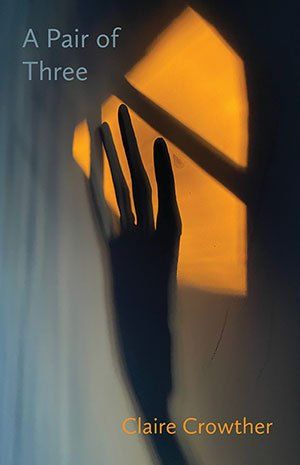
Ian Davidson New and Selected Poems
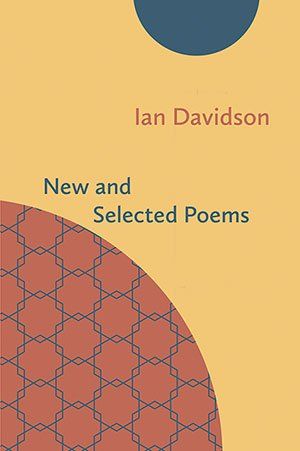
Pietro De Marchi Reports after the Fire: Selected Poems
Translated from Italian by Peter Robinson
Published 2022. Paperback, 186pp, 9 x 6ins, £14.95 / $23
ISBN 9781848617988 [Download a sample PDF from this book here .]
Pietro De Marchi was born in Seregno, Milan, in 1958, and has lived and worked for much of his life in Zurich. A widely published critic and editor of scholarly editions, he is the author of two volumes of imaginative prose and three extensive collections of poetry, from which Reports after the Fire: Selected Poems generously draws, adding a section of uncollected work. The two key poles of De Marchi’s life place him firmly within the tradition of the so-called Lombard Line, including poets such as Vittorio Sereni and Luciano Erba, whose work is characterised by an acute attention to their immediate surroundings, settings evoked with strong affective bonds and acutely turned historical ironies. De Marchi has affinities, too, with Giorgio Orelli and Fabio Pusterla, poets from the Italian-speaking area of southern Switzerland who share aesthetic principles with their Milanese allies. The poems translated in Reports after the Fire are distinguished by a clear-focused attention to the lives of others, especially children, to the intersections of language and identity, location and sensibility, clarifying and sharing experiences of displacement and survival which De Marchi evokes with a finely tuned ear for idiom, allusion and cadence, poems in which, as Giorgio Orelli put it, ‘the soul seems to expand into all that we look at and are looked at by, in a sort of strange holiday.’
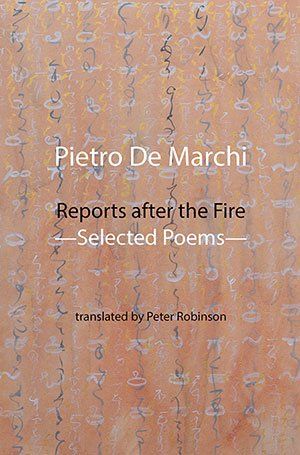
Mark Dickinson Networks
“In this brilliant collection, Mark Dickinson ranges – with a passionate, weary restlessness – over bird, plant, monetary, sexual, and internet networks, but mocks any easy connection between these. His tone varies from lovingly intimate to bitingly witty, picking up language from taxonomic systems, social media, travel and nature writing, but all the while retaining a lyric intensity and sense of dynamic, layered, threatened living spaces. We feel, powerfully, the search for values we might live by, but the work demonstrates again and again that this is hard to come by: ‘Gathering a sense of love from a hole of black earth is dark dark, & everything is leaving’.” —Harriet Tarlo
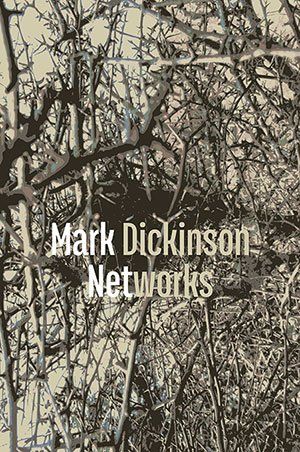
Tom Docherty If the Mute Timber
Tom Docherty’s first collection, If the Mute Timber, begins ‘not with a book / nor even an attentive ear’, but with the elusive fragment of its title. The poems situate themselves in medias res: among birds or gravestones, between lines of prayer, in the flux of appearances. Places without words become focal points: the poems seek articulation in life before birth and after death; in animal and imagined lives; in works of music, painting, and architecture; and in the varied silences of human and divine relationships. In one sense, the poems are variations on the vanitas – but the transience of life and its artefacts is transposed to an offering, a potential key in which to register the work. When followed to their natural end, fragments become sentences, notes are sung.
Giacomo Donis An Abyss of Dreams
Published 2022. Paperback, 416pp, 9 x 6ins, £19.95 / $32
ISBN 9781848618466 [Download a sample PDF from this book here .]
ISBN 9781848618749 (eBook; available only from retailers), £9.95 / $12.50
This is the author's 'dream book': he recounts his real dreams, of the night before, and of years and decades before. His two cats also tell their tales, chasing their tails, 'after' their lives and their deaths.
Meta-memoir: dreams have long afterlives. This
Abyss , with its cats, and its dreams, travels through the entire history of psychiatry, from ancient Greece to present-day Venice. Where, dressed in a moon suit, Eudemus visits the author’s great friend, and psychiatrist, in Intensive Care, in the Venice hospital. Chasing their tails, author and Eudemus together see, for themselves, reaching out from the eyes of their friend, the beginning, and the end, of the soul: the night of the world.
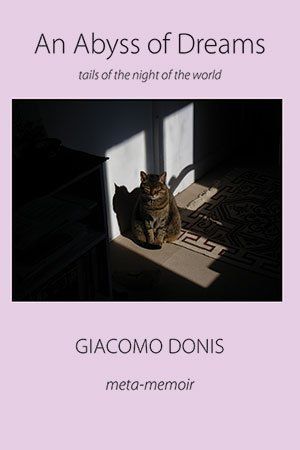
Ukrike Draesner this porous fabric: Selected Poems
Ulrike Draesner is recognised as one of Germany’s most important living poets, as well as being an original and daring writer of fiction. Her poetic language, recorded where breath and script meet, can unsettle conventional reading modalities: its orthography refuses to capitalise; its punctuation – if the stops and starts may be called that – is rarely executed by comma or period; its sequentialities, shunning the comfort of bespoke narrative, undermining the reliability of marching lines and subaltern clauses, are born at the intersection of worldly impulse and bodily pulse, vulnerable to the loops of memory. Her writing favours an exchange with the reader that explores unfamiliar modes of encountering the world to form the sociable space of a poem. Her work is charged with a delicious, inquisitive restlessness. Visually acute, her poems are keen to discover, reflect on and body forth complex blendings of thought, sound, smell and image, delivering a revealing diffraction to the reader’s ear.
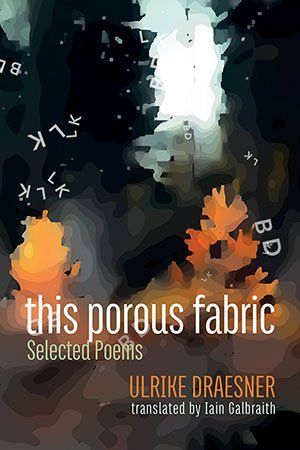
Andrew Duncan Nothing is being suppressed
"There are several reasons for writing about the Seventies at this point. One is a reading of a recent collection of memories of the decade by participants. My impression was that they couldn’t remember the period – too much time had gone by. They had lost all sense of differentiation and were writing about 1975 as if it was 2015. It is also possible that any attitudes of the previous time which didn’t chime with current positions were being written out, consciously or unconsciously. The extent of the mismatch is of great importance, I think. This suggested that there was a real problem with memory, justifying an account based on contemporary documents. The other problem with memory is that we are living in a splinter dictatorship, a cultural phase where the forces of convergence have stacked arms and opinions are split up into small groups. How can there be a collective memory when there is no single point on which all factions agree? so how can I record collective memory? in what sense is any statement about poetry true? But this argues even more for putting facts down and increasing the area free from malicious invention. We need to think about the divergence as a phenomenon in itself, a kind of cultural gravity that guides all the watercourses. The splintering allows local freedom at most locations – what it does not allow is unifying literary opinion." — Andrew Duncan
Kjell Espmark A Cloud of Witnesses
Published 2022. Paperback, 110pp, 8.5 x 5.5ins, £10.95 / $18
Tony Frazer (ed.) Shearsman 131 / 132
The first double-issue of Shearsman magazine for 2022, and features poetry by Tim Allen,
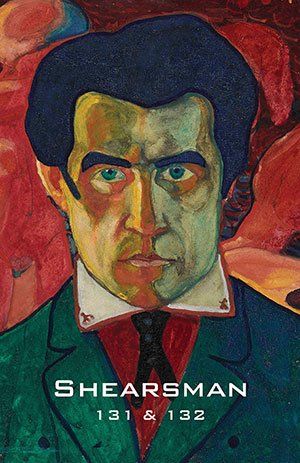
Khaled Nurul Hakim To the Hitchhiking Dead
To the Hitchhiking Dead is a book-length sequence culled from notebooks made between 1986–1988 when hitchhiking in Europe and England or otherwise doing nothing. An unknown poet – even to himself – who didn’t know he was seeking and fleeing lost love, and assured he was the only Asian freak on the roads in nail varnish and pearls. Those notebook sketches were towards an epical rhapsody that never got written. By the time I came to be published in the ’90s my poetry was framed in a post-Language discursivity: hard, vituperative, directed to actual audience-readers (epistles, performances). No-one would know that poet was made of such Romantic ravings. In 2019 I revisited the dozen notebooks to piece it together.
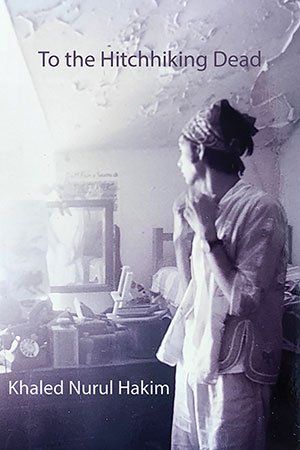
Ralph Hawkins A Fancy Breeze Gets Up
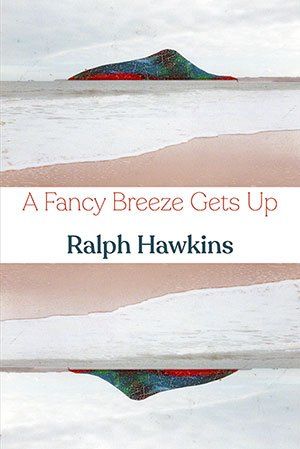
Kathleen M Hedeen & Zoë Skoulding (eds.)
Poetry's Geographies: A Transatlantic Anthology of Translations
Available in North America from Eulalia Books.
Kareem James Abu-Zeid, translating Najwan DarwishDon Mee Choi, translating Kim HyesoonSasha Dugdale, translating Maria StepanovaDaniel Eltringham, translating Ana María RodasForrest Gander, translating Coral BrachoJohannes Göransson, translating Kristina OlssonKatherine M. Hedeen, translating Víctor Rodríguez NúñezMeena Kandasamy, translating ThiruvalluvarGhazal Mosadeq, translating Akhavan SalesErín Moure, translating Chus PatoZoë Skoulding, translating Fred ForteStephen Watts, translating Ziba Karbassi
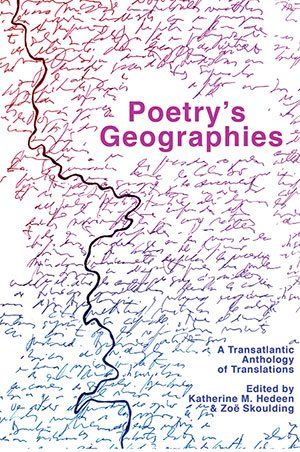
David Herd Walk Song
Written between 2015 and 2020, the poems of Walk Song build through a series of sequences which look to animate solidarities and the languages of rights. Taking their bearings from the Refugee Tales project, and always grounded in the collective walk, these are poems of friendship and movement, of landscape and politics, of action and hope. Addressing the environments we have made, the border and its hostilities, Walk Song sets out to picture settings in which the language might be opened, step by step.
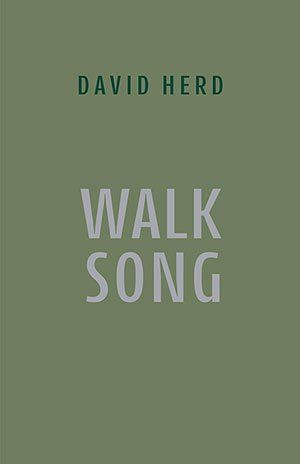
Jeremy Hooker The Release
Published 2022. Paperback, 104pp, 9 x 6ins, £10.95 / $18
Since Welsh Journal (2001), I have periodically adopted a form of writing that juxtaposes prose and poetry. The Release is a work of this kind, in which diary entries and poems are combined and interact. Roughly speaking, the diary records experience that generates the poems, or, to use another metaphor, the poems disclose their roots in the prose. Between June 2019 and August 2020, I spent four long periods in hospital, initially in Prince Charles Hospital in Merthyr Tydfil, and latterly in the Renal Unit at The Heath in Cardiff. The diary records my experience as a patient and reflects aspects of the life of the hospital; the poems respond to what I felt and saw in the ward, but also go beyond being a record of everyday reality. Like my Diary of a Stroke and other journals, The Release is a poet’s journal. In ways that the book describes, the periods of hospitalisation proved to be intensely creative. This was partly due to having so much time to write and read and think, together with the ever-present sense of mortality. (Jeremy Hooker)
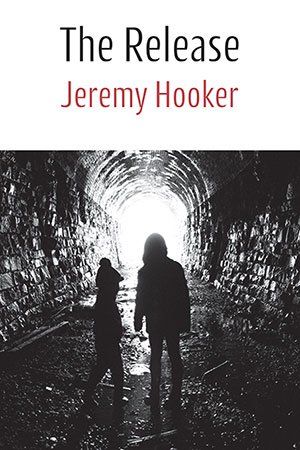
David Jaffin Snow Dreams
The world's busiest poet strikes again. David Jaffin offers here his third collection of short lyric poems for 2022, this time revolving around the island of Cyprus which he visits every year.
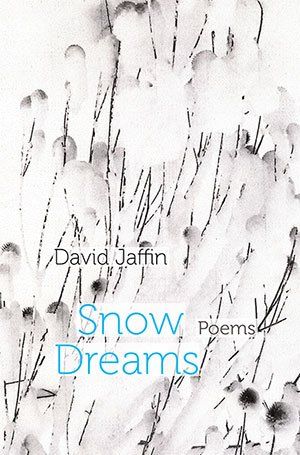
David Jaffin Ukraine Poems: February 9, 2022 — February 24, 2022
David Jaffin is the world's busiest poet. As the title suggests, this volume was written in the days running up to the Russian invasion of Ukraine on 24 February 2022, and engages with the author's life, meditations, thoughts about art, literature, friends and God during the run-up to day when troops crossed the border.
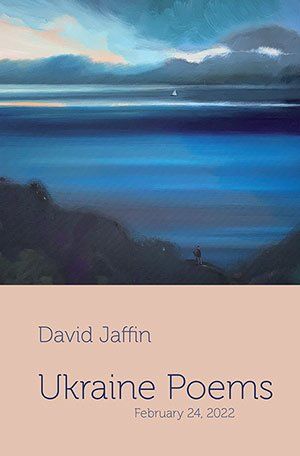
Kent Johnson Nuper Verba
“If, as it has been claimed, the satirist is a left-handed writer, the analogy seems made for Kent Johnson’s inimitable, fearless and much needed contribution – the one-in-ten, or more like one-in-a-thousand corrective, antidote, ballast, counterpoint, to the worst excesses and insincerities of western poetry’s decadence and pomposity. In Nuper Verba – the Latin title is apposite – he takes aim at poetry’s postures of antagonism, even as it drains the last best wine and lounges on a mouldering couch of bursaries. Truth-sayer or holy fool, insider’s outsider or witnessing spirit, the moral force of Johnson’s project, as well as its sublime humour, shines like so many corroding rays, here reaching moments of unanticipated lyrical brightness. He’s never been funnier or more strangely moving. Refusing consensus and mentioning the unmentionable remains the true poet’s calling, and Johnson’s poetry reminds us of this, with the beautiful sobering chill of genuine veracity.” —Sam Riviere
“The writings of Kent Johnson over the years have given us an outsized sense of disquiet and mockery, as he revives and transforms the ancient art of satire, bringing it laughing and raging into a new century and millennium. The great pleasure in Nuper Verba is, then, the comic fury he gives to poems that aim at the literary present, while aware of a range of poets and literary pretenders from ancient Rome to contemporary USAmerica and elsewhere. The words and thoughts that Johnson gives to Horace in “translation” are directed simultaneously and sometimes outrageously to the poets and poetry wars of our time. An adjustment well worth making.” —Jerome Rothenberg
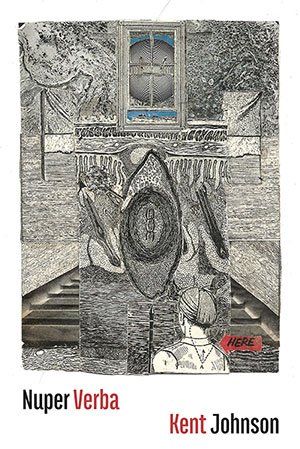
Andrew Jordan The Trusty Servant
I chanced to see Old English verse in paragraphs like prose, obsolete characters redolent of atmospheres we are no longer encouraged to admit. An ancient tradition, reaching beyond us into new forms, frames what we might hand over or betray.
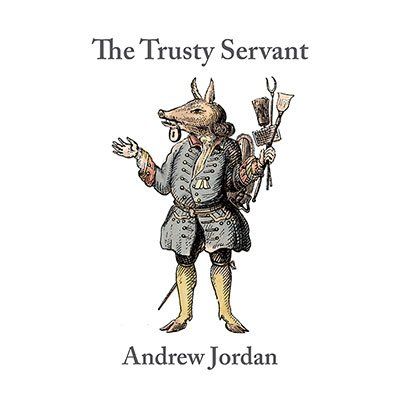
Ferenc Juhász Selected Poems
Published 2022. Paperback, 74pp, 9 x 6ins, £10.95 / US$18.
Not for sale in Canada.
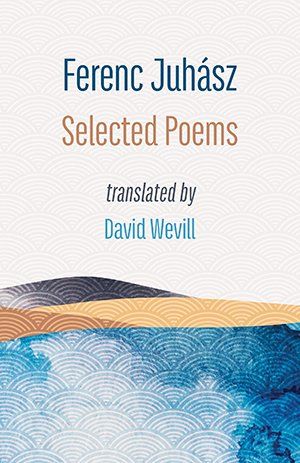
Bridget Khursheed The Last Days of Petrol
My interest is in ecopoetry and the teetering intersections between landscape (or the shape of things), nature and population. The new collection, The Last Days of Petrol, centres on how we cannot imagine that the world as we know is about to change in personal, political or global terms. Summed up in a couple of quotes: one from George Eliot – “A man will tell you that he has worked in a mine for forty years unhurt by an accident as a reason why he should apprehend no danger, though the roof is beginning to sink; and it is often observable, that the older a man gets, the more difficult it is to him to retain a believing conception of his own death.” And one that is included in the collection itself from Hugh MacDiarmid – “It is a frenzied and chaotic age, Like a growth of weeds on the site of a demolished building.” We continue to search for our homes and perhaps that will transform our relationship to earth. (Bridget Khursheed)
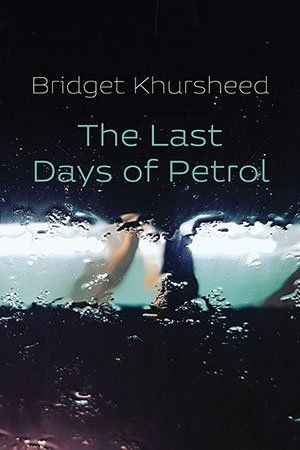
Kenny Knight Love Letter to an Imaginary Girl Friend
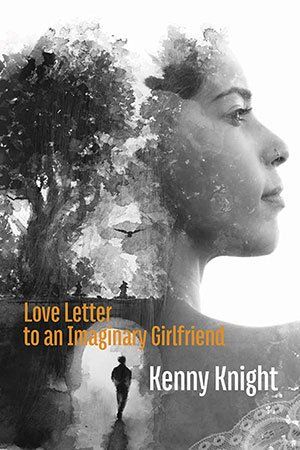
Nancy Kuhl On Hysteria
On Hysteria, Nancy Kuhl’s fourth collection of poems, is a lyric engagement of voice, memory, longing, and the fraught ways we speak ourselves. In conversation – and sometimes conflict – with Sigmund Freud’s foundational text of psychoanalysis Studies on Hysteria (1895), Kuhl reframes the discourse surrounding cases of so-called hysterical girls and women, expanding and shifting given narratives. With intensity and emotion, On Hysteria examines how ideas may be converted into physical symptoms, thought collapsed into sensation, articulation fused with forceful action. Above all, Kuhl’s poems consider ways suffering itself becomes unbounded expression: “Her pain is a voice / pulled by handfuls / from the throat.”
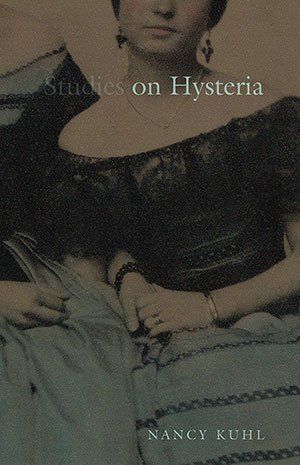
Mary Leader The Distaff Side
Joanne Leedom-Ackerman PEN Journeys—Memoir of Literature on the Line
eBook version (ePub) ISBN 9781848618077, £4.99 / $9.99 [Available only from retailers]
"This memoir… covers a crucial time in the history of freedom of expression… filled with daring adventures, philosophical debates and meetings with some of the bravest writers and journalists who have risked so much to tell the truth." —Jennifer Clement, President, PEN International 2015–2021
"Joanne Leedom-Ackerman is the history of PEN incarnate. As president of a center, Chair of the Writers-in-Prison Committee, International Secretary, and a PEN International Vice President, she has been a steady and guiding force in the organization and its dedication to freedom of expression for more than one-third of PEN’s first century. Her dedication to literature and human rights personify PEN International. These accounts do what all good writing does: She makes people and events vibrant. —Eric Lax
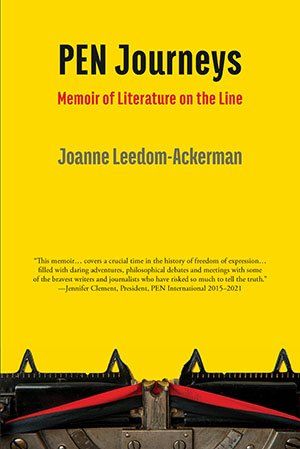
Tom Lowenstein The Bridge at Uji
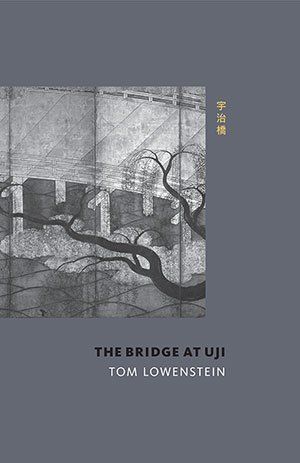
Osip Mandelstam The Voronezh Workbooks
Published 2022. Paperback, 178pp, 9 x 6ins, £12.95 / $20
Osip Mandelstam spent three years in internal exile in the city of Voronezh, in south-western Russia, after someone in his circle of acquaintances had informed the Soviet authorities of his "Stalin Epigram" in 1934. The ninety-odd poems he wrote there are the pinnacle of his poetic achievement, bearing witness to Mandelstam's consistent independence of mind and concern for the freedom of thought. More covertly and controversially, however, they also bear the marks of Mandelstam's attempts to somehow reinstate himself back into Soviet society. In addition to all the poems that Russian editors have suggested constitute the sequence Mandelstam would have wished to see into print, this edition includes the main variants and exclusions preserved in manuscripts and the memory of Mandelstam's wife and executor, Nadezdha Mandelstam.
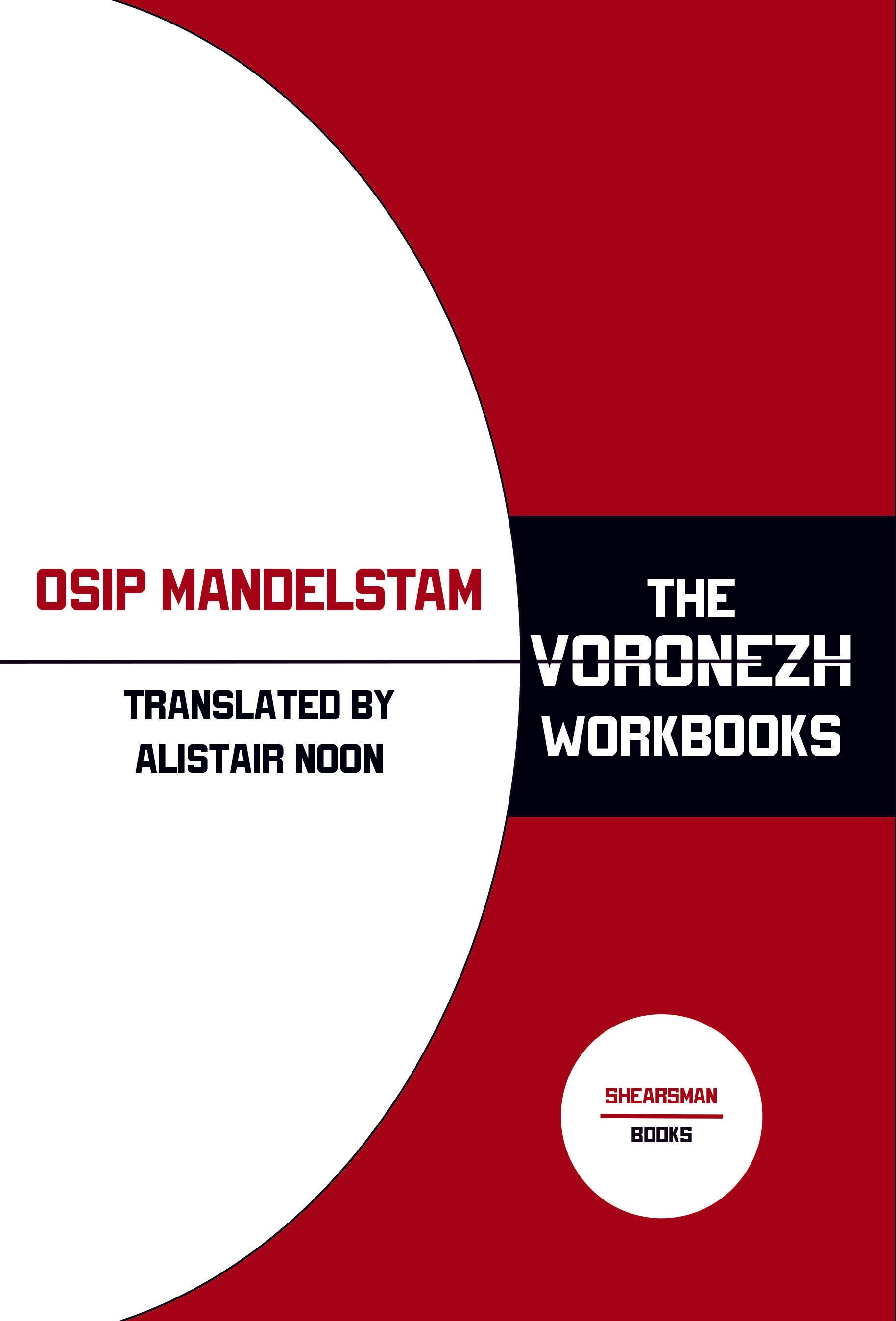
Osip Mandelstam Occasional and Joke Poems
Published 2022. Paperback, 106pp, 9 x 6ins, £10.95 / $18
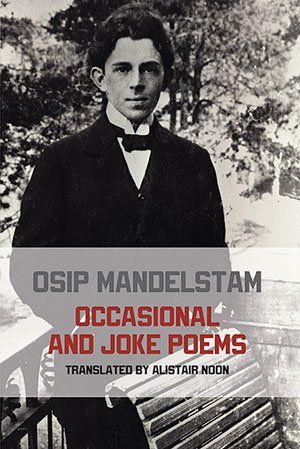
Ruth McIlroy The Pot of Earth and the Iron Pot
Ruth McIlroy is a poet of the ‘tilting world’. Her lyrics are charged with immediacy and proceed off-kilter in the revelation of familiar experience as unfamiliar and normality as something quite other. ere is much here, directly and indirectly, of heroic Gaelic song, both ancient and modern, conveying humour, darkness and arresting beauty executed with startling, sure-footed precision. Whether in lamentation, the conjuring of a curse or jogging in the park, in every mode the singer is possessed by the song. I once asked a Gaelic singer from the Isle of Lewis — What are you thinking about when you sing these songs? Oh the song mostly, the song, she said. Ruth McIlroy has this secret and doesn’t so much make it new as show us that it never grew old. At every turn in The Pot of Earth and the Iron Pot song is happening not only in the trees but almost everywhere else too. —Kelvin Corcoran
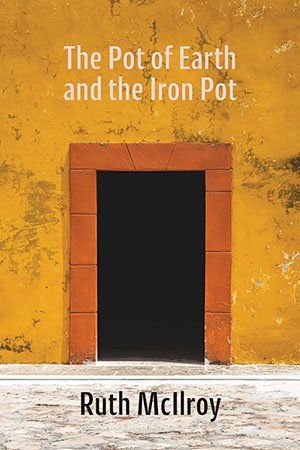
Arvind Krishna Mehrotra Collected Poems
Published 2022. Paperback, 320pp, 9 x 6ins, £16.95.
ISBN 9781848617964 [Download a sample PDF from this book
here .]
Not for sale in North America, Australia or India.
Gathering the work of a lifetime, and including a number of new poems, this
Collected Poems —first published in India by Penguin, and then in Australia by Giramondo—is a comprehensive collection of the work of one of India’s most influential English language poets. Arvind Krishna Mehrotra’s poetry has long been known for its mixing of the commonplace and the strange, the autobiographical and the fabulous, in which the insignificant details of everyday life—whether contemporary or historical—bring larger patterns into focus. Mehrotra’s celebrated translations from Indian languages (Prakrit, Hindi, Gujarati, Bengali) take up a third of the volume. Selections from
The Absent Traveller and
Songs of Kabir are followed by those of Nirala, Vinod Kumar Shukla, Mangalesh Dabral, Pavankumar Jain and Shakti Chattopadhyay. Together they tell the story of Indian poetry over two millennia.
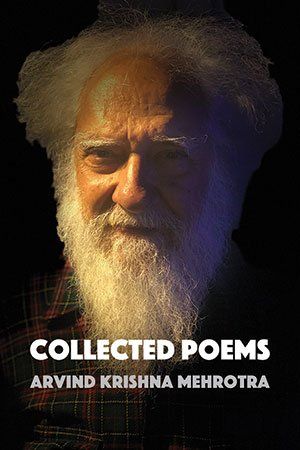
David Miller Afterword
Published 2022. Paperback, 106pp, 8.5 x 5.5ins, £10.95 / $18
ISBN 9781848618046 [Download a sample PDF from this book
here .]
Afterword is a long poem in fragments, with some long lines of poetry folded over, as it were, onto the next line(s) of the page, as in Walt Whitman, Carl Sandburg and Allen Ginsberg.
It is a long poem in fragments, but it might also be seen as a poem sequence: of memories and meditations, dreams and (for want of a better word) visions. It’s increasingly invaded by images of destruction and desolation: of nature, of animals, of humankind; with those images prefigured by the opening passages.
At the end of the text, the negative emphasis is “turned” upon and against itself into the language of transition. It’s a poem that’s concerned with limits and the possible surpassing or exceeding of limits.
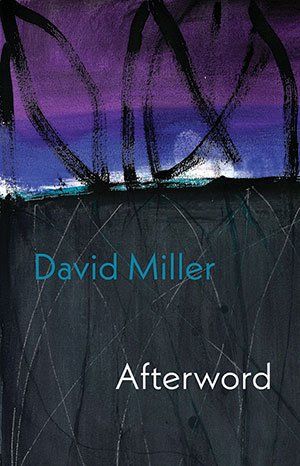
Sandeep Parmar Faust
Goethe’s version of the scholar’s fateful wager with Mephistopheles inspires the central sequence of Faust, mapped onto the figure of the migrant who flees a postcolonial legacy of fire, displacement and climate destruction for a life of eternal striving. As Parmar asks in 'The Winnowing Shovel': 'How is striving itself, as an idea built into literary models and real-life stereotypes of the good immigrant or the model minority, how might striving—in the Faustian sense—provide a way of thinking about heroism, tragedy (modern and ancient) and migratory grief? Who chooses to leave and why, who attempts to return, who stays on, who, to borrow from Bhanu Kapil’s image of reverse migration, is made psychotic in a national space, who is this hero who journeys, who strives and for what? To be visible or invisible? As others have looked to the Faust legend for ways to explore the insatiability of man’s appetites, the questions I put to Goethe’s version specifically bring together three strands: striving as a fear of and countermeasure against mortality; a critique of globalisation and technology; and the female element underlying male aggression, destruction and desire.' From Goethe to Elizabeth Bishop, Vivien Eliot to Winckelmann, Homer and Marilyn Monroe—Faust’s poems meditate on the accruement of loss and of the impossibility of home.
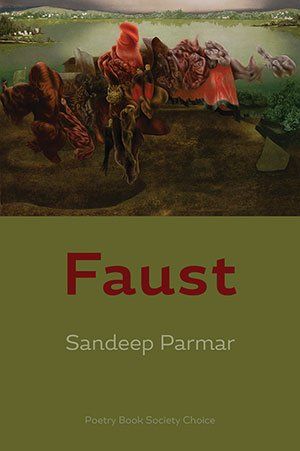
Frances Presley Collected Poems, Volume 1 — 1973–2003
The first volume of Frances Presley’s Collected Poems, 1973 to 2004, provides an important overview of her earlier life and poetic development. She experiments with modern and postmodern poetry and prose, projects and collaborations, sometimes associated with the new British poetry. Her feminism and political commitment are sharply defined, alongside a growing concern for ecology. It includes The Sex of Art, Hula Hoop, Linocut and Somerset Letters, as well as her collaborations, with artist Irma Irsara, on women’s clothing, Automatic Cross Stitch, and with poet Elizabeth James, Neither the One nor the Other. It supersedes and expands her selected poems, Paravane (2004) and Myne (2006).
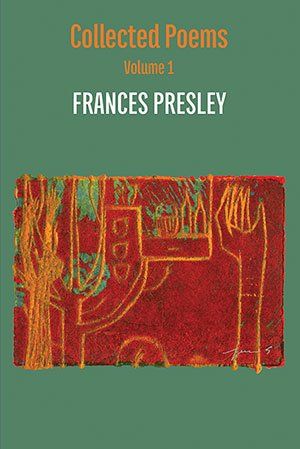
Frances Presley Collected Poems, Volume 2 — 2004–2022
The second volume of Frances Presley’s Collected Poems, 2004 to 2020, brings together a distinctive body of work, representing a major achievement in modern and postmodern poetry and prose, projects and collaborations. Feminism and political commitment are still evident, but ecology and ecopoetics are foregrounded. It includes Stone Settings and Longstones which explore Neolithic stones on Exmoor, in collaboration with visual poet Tilla Brading; the playful An Alphabet for Alina, with artist Peterjon Skelt; as well Halse for Hazel, which received an Arts Council award; and the Ada Lovelace project, Ada Unseen. There is also a new sequence, Channels, on shorelines and parallel coasts.
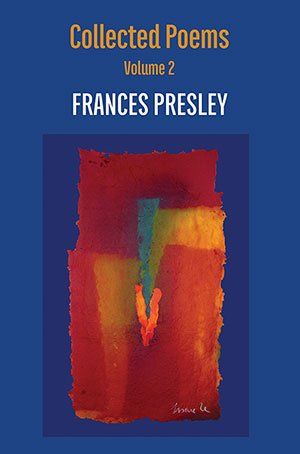
J.H. Prynne Whitman and Truth
Published 2022. Chapbook, 24pp, 8.5 x 5.5ins, £7.50 / $10.95.
ISBN 9781848617926
Whitman and Truth is a set of reading notes intended to introduce third-year university students to Whitman’s reading of war, with enlightening comparisons offered from the work Susan Sontag, Sir Philip Sidney, Mo Yan, Edmund Blunden, and others.
J.H. Prynne is Britain’s leading late Modernist poet. His Poems (1982) collected all the work he wished to keep in print, beginning with Kitchen Poems (1968). An expanded and updated version was published by Bloodaxe Books in 1999 as Poems , with a second, expanded edition in 2005, a third in 2015, and a fourth now in preparation. Prynne is a Life Fellow of Gonville and Caius College, Cambridge. In 2005 he retired from his posts teaching English Literature as a Lecturer and University Reader in English Poetry for the University of Cambridge and as Director of Studies in English for Gonville and Caius College; he retired as Librarian of the College in 2006.
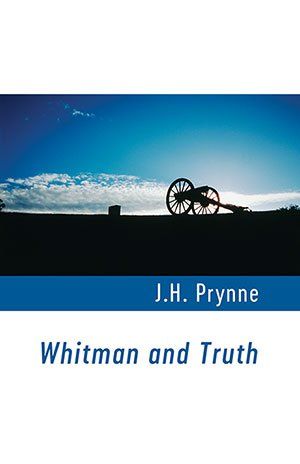
Víctor Rodríguez Núñez rebel matter : poems 2000–2021
"This magnificent selection from two decades of work by Víctor Rodríguez Núñez confirms his pivotal position in international poetry. Dissolving fixed identities and formal limitations alike, the mercurial spaces of these poems reveal multiple selves, elliptical journeys and a passionate attention to everyday sensory experience. This is Cuban poetry energized by transcultural encounters, while two vital language currents of the Americas, Spanish and English, meet in Katherine Hedeen’s scintillating translations. As ‘rebel matter’, these are poems that engage with the world in its elements – molten, fluid and restless. They invite the reader to tune in to new frequencies, not just to the sonic pleasures of language, but also to the lively matter of a universe beyond the human, its squirrels, asphalt, dust clouds and stars. Poetry’s imaginative potential, Rodríguez Núñez reminds us, generates forms of dialogue that are more urgent now than ever: ‘there won’t be revolution / if we don’t let night speak’." —Zoë Skoulding
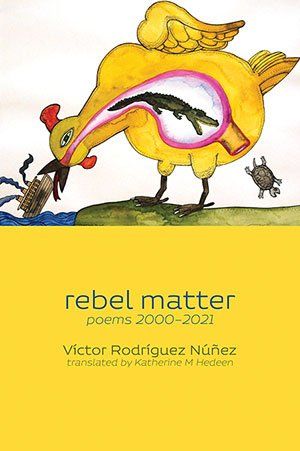
Sumana Roy V.I.P. — Very Important Plant
David Rushmer What Space Between Us
"Rushmer's spare and abstract linguistic structures may well be unique in contemporary British poetry, drawing, as they do, on a European poetic tradition that questions the nature of language and its relationship with perception. Words are valued for their own sake, held up for examination and made to chime like struck glass. To the crystalline abstractions that Rushmer inherits from French poetry is added Taoist-inspired spirituality and the influence of Chinese and Japanese calligraphy in an amalgam of great beauty. What Space Between Us is a landmark collection; a wide-ranging and rich series of poems, which asks time and attention of the reader, but will repay it abundantly." —Alan Baker
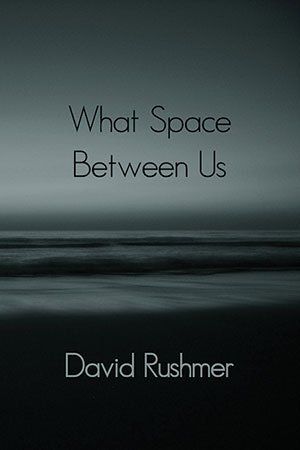
Maurice Scully Airs
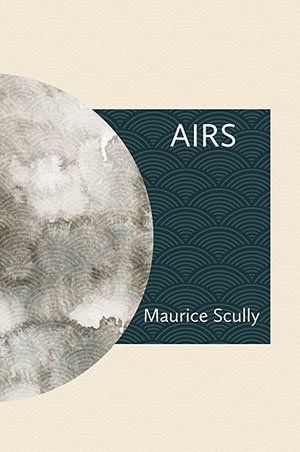
Simon Smith Municipal Love Poems
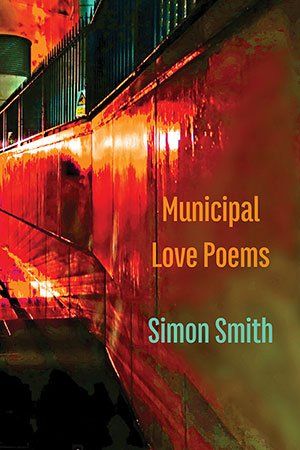
James Sutherland-Smith Small-Scale Observations
Published 2022. Paperback, 92pp, 9 x 6ins, £10.95 / US$18.
ISBN 9781848618473 [Download a sample PDF from this book
here .]
The poems in James Sutherland-Smith’s eighth collection move from the garden into the neighbourhood of “a down-at-heel Hapsburg town” and then range into the nearby forest, the personal and the past. Borders are crossed and seemingly insignificant creatures suddenly gain visionary dimensions. The title poem recalls a poet whose attention to the small-scale made his work seem minor, yet as Hardy wrote “he noticed such things,” a heedfulness absent in a contemporary world where both simplistic analysis and solutions constantly fail to address threats to our very existence.
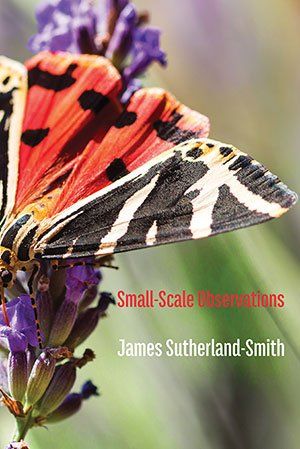
Volodia Teitelboim Vicente Huidobro — in perpetual motion. A Biography.
Published 2022. Paperback, 346pp, 9 x 6ins, £16.95 / $25.
Volodia Teitelboim knew Huidobro when the great poet returned to Chile from Paris after the Great Depression began. A tyro poet himself, and a committed leftist, the author was to fall out with Huidobro before the end of the decade, but not before co-editing the groundbreaking Anthology of New Chilean Poetry in 1935, which foregrounded Huidobro's work. Poet, novelist and essayist, as well as, eventually, leader of Chile's Communist Party, Teitelboim is an excellent and often amusing guide to his mercurial subject, and offers a plethora of stories and anecdotes from those who knew Huidobro well, as well as recalled conversations with the great man himself. This book was the third of Teitelboim's poet biographies, following books devoted to Neruda and Mistral.
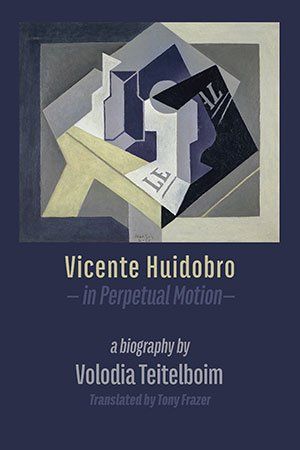
Marina Tsvetaeva Head on a Gleaming Plate — Poems 1917–1918
The poems in this volume were composed between August 1917 and November 1918, and thus they span the most turbulent period of the 20th century in Russia, as the nascent republic was overthrown by the Bolsheviks, and the country descended into civil war. This collection concentrates only on the lyric poems that Tsvetaeva wrote at this time, and their importance should not be underestimated. Each offers a modest, unassuming gateway to the immense world of her imagination and her travailed, eternally questioned and endangered humanity, including those with a missing word or phrase she did not find the time, to locate and craft amidst the overwhelming flow of inspiration. Like the events which formed their background, these poems raise ethical and human issues to which no simple answers can be found. And when Tsvetaeva announces, as the winter of 1918-1919 approaches, that ‘It befits heroes to be frozen’, she prompts us to consider the nature of her own, very personal heroism, at a stage when the very worst was still to come.
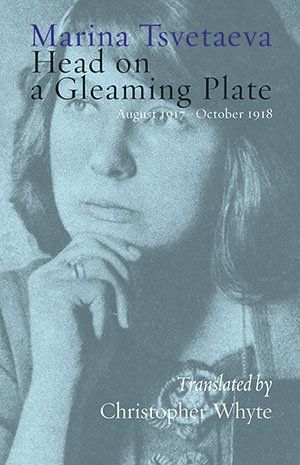
César Vallejo Trilce
Published 2022. Paperback, 266pp, 9 x 6ins, £14.95 / $25.
Trilce is one of the great monuments of 20th-Century Hispanic poetry, as important in Hispanic letters, as The Waste Land and The Cantos in the anglophone world, and all the more amazing for having been composed in remote Peru. Full of neologisms and symbols, the book is one that needs to be re-translated often, but this is only the second version to appear in the UK, and the fourth in the USA. A fully bilingual book, the Spanish texts are based upon the very latest scholarship, and are presented with full explanatory annotations for the English-speaking reader. Apart from the canonical text of Trilce, the book also includes an appendix of a further eleven poems, some of which are earlier variants and some which are poems connected to the main text, which it is useful to have available as background to the canonical version of Trilce.
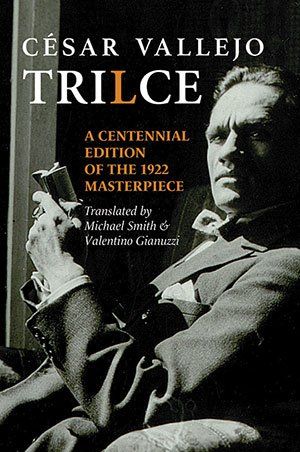
David Wevill Collected Earlier Poems
Not for sale in Canada.
The first volume of David Wevill's Collected covers the work originally published in the UK — although the books also appeared in the US and Canada. Four full collections are represented: Birth of a Shark (1963), A Christ of the Ice-Floes (1966), Firebreak (1971) and Where the Arrow Falls (1973), although the author had already relocated from London to Austin, Texas by the time the last two were published. Added to the full collections are poems that appeared in the two anthologies, A Group Anthology (1963) and Penguin Modern Poets 4 (1963, in which the author shared space with David Holbrook and Christopher Middleton, the latter a fellow Texan exile). This volume demonstrates exactly why Wevill was held in such high regard in the 1960s. This volume may be regarded as an act of restitution.
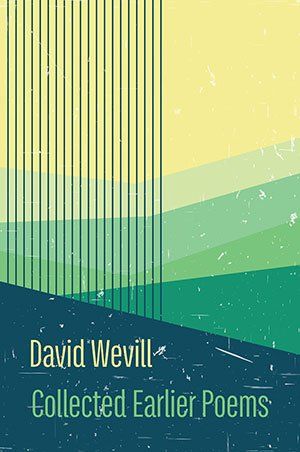
David Wevill Collected Later Poems
Not for sale in Canada.
The second volume of David Wevill's Collected covers work originally published in the author's native Canada — Other Names for the Heart (1985), Figure of Eight (1987), Child Eating Snow (1994), Solo With Grazing Deer (2001) and Asterisks (2007) together with some uncollected work. While some of these poems have appeared in the author's British and US Selected editions, this is the first time that the entire corpus has been made available outside Canada. This volume brings a major poet back before the British public
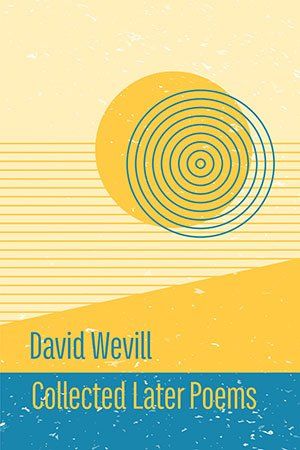
David Wevill Casual Ties
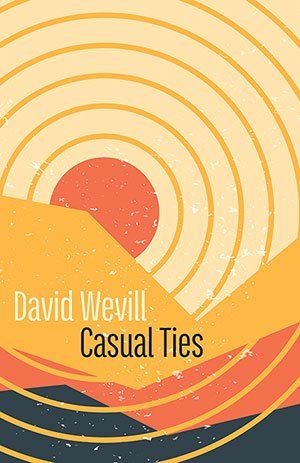
David Wevill Translations
Not for sale in Canada.
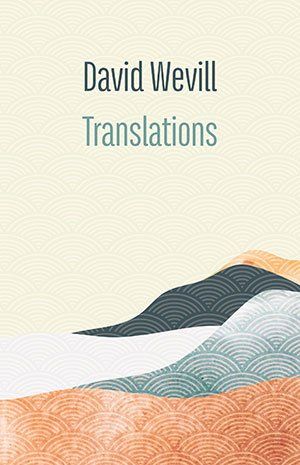
JL Williams Origin
This is the story of a baby coming into the world, and of her first year in that world altered beyond recognition by a virus born into our lives at nearly the same time. It is a song of breath, and of light. It is a collection of love poems, and a cry flung into the universe echoing the cry of all babies, a cry of loss and of nearly unbearable love. It is a book not just for pregnant women, or new mums and dads, but for all people who have entered through that small crack into the light of this life, and for all who have parents and have grappled with the joys and challenges of those most intimate of relationships. It is a song of light, and of breath. It is a story of where we come from.


